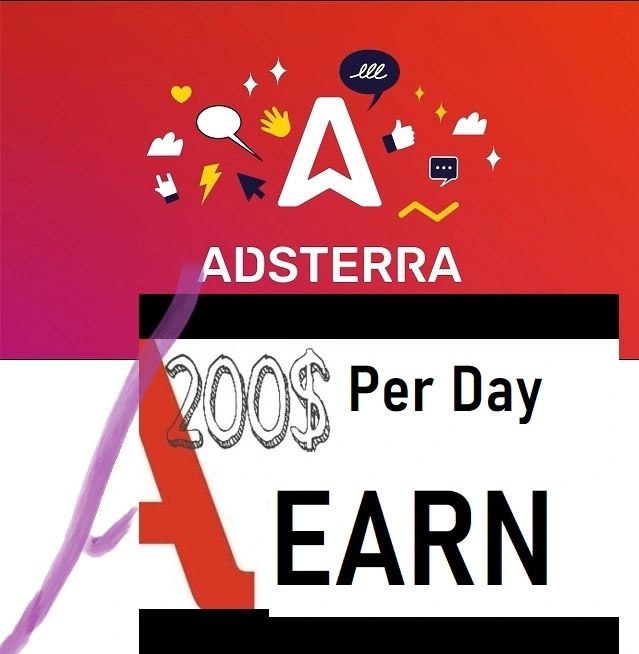Astronomy Careers
Astronomy Careers
At the end of this page are pointers to excellent references for those thinking about going into astronomy as a career but first, some brief comments of my own. The professional research astronomy field is small (not a lot of jobs) so you truly need to have a passion for the subject—a passion for figuring out the underlying physics of how things work, solving puzzles, and tackling huge questions that might take many years to find the answer to. Questions like: “where did we come from?”, “how was the world created?”, “how was the universe created?”, “are there other universes?”, “how will the world (i.e., Earth as a planet) end?”, “how will the universe end (will it end)?”, “are there other intelligent civilizations out there (beyond the Earth)?”, “what does it take to make a habitable planet?”, “what is the universe made of?” and other “big picture” questions.
Try Adsterra Earnings, it’s 100% Authentic to make money more and more.

HOWEVER, there are many, many jobs available for which an astronomy bachelor’s degree could prepare you besides being an astronomer or astrophysicist! That’s because of all the computer/technology/engineering/analytical/communication skills you develop in the astronomy classes and research projects. Consider this short list of what you can do with an astronomy/astrophysics degree (in alphabetical order): aerospace engineer, analyst, astronomer, astrophysicist, climatologist, chemical engineer, computer systems analyst, data analyst, design engineer, educator outside the classroom (such as museum education & outreach coordinator), electrical engineer, engineer, geophysicist, industrial engineer, instrument designer, laboratory technician, mathematician, mechanical engineer, observatory manager, photographer, planetarium director, policy analyst, professor, programmer, physicist, research assistant, research scientist, science writer/journalist, software developer, software engineer, statistician, teacher (high school science), telescope engineeer, telescope operator, theoretical astrophysicist, and others.
Likes and Attitudes
You need to like solving physics and math problems because you will take A LOT of physics and math classes in undergraduate college to get your bachelors degree. In fact, many astronomers get a physics bachelors degree and then go on to get a masters or doctorate (PhD) in astronomy/astrophysics. For professional research astronomy, a PhD is required. For strictly teaching jobs, a minimum of a masters is required. Either way, it is A LOT of school, so you need to have a passion, or love, for the subject in order to get through all of that college work. You need to like working with computers as the huge data sets (measured in terrabytes) and complex multi-variable modeling require a lot of computer processing. You also need to like working with other people in teams because current and future problems or questions require the ingenuity of many people working together on a single project to solve a problem or answer a question.
Formal Writing Ability
Finally, you need to know how to communicate with other people verbally and in formal writing (sorry, facebooking and texting works only with your friends, not in the professional world and the larger society). You may be the smartest person in the world but if you cannot articulate your ideas in a logical, convincing way (using evidence), no one beyond your parents and closest friends will think so and your ideas won’t be known beyond them. A critical (essential) part of science is communicating your results in professional journals, conferences, and sometimes to the general public, who directly or indirectly pay your salary through their taxes. Being able to write well in a formal manner to those who do not know you is essential to your success in a research or teaching job (and getting paid).
Where Do They Work?
A majority of astronomers work in colleges and universities. Usually, that means teaching as well as working on a favorite research project. About a third of the astronomers work for the government or government-supported institutions (e.g., NASA, National Optical Astronomy Observatories, National Radio Astronomy Observatories, U.S. Naval Observatory, Space Telescope Science Institute, etc.). Another ten percent (or so) work in business and private industry either on space-related projects or other areas where an analytical person with great problem-solving skills is needed. The remainder work in science centers, planetariums, and other (informal) education & public outreach (EPO) efforts.
How Much Does an Astronomy Job Pay?
I left the money part of the job to the last because it should be the least important part of the reason why you go into astronomy as a career. While you won’t be poor in an astronomy job, you probably won’t get rich (monetarily) either. Your passion/love for research and/or teaching astronomy is the reason you make astronomy a career. The most recent information is from the American Institute of Physics (see their salary calculator), other data sources posted on the American Astronomical Society’s Employment Statistics webpage, plus the Occupational Outlook Handbook from the Bureau of Labor Statistics. The Occupational Outlook Handbook’s data for 2017 shows 80% of the salaries (back then) for astronomers ranging between $54,110 and $165,280. In May 2017 the median annual wages were $146,130 in the federal government and $73,750 in higher education institutions—see the OOH site for updated information!
The “Education Pays!” data updated annually from the Bureau of Labor Statistics looks at median salaries vs. education levels for all professions. It shows that our economy is (by and large) based on knowledge and analytical (critical) thinking—just the thing your teachers always talk about. The better you are able to analyze and solve a problem, the more you get paid. So, even if astronomy isn’t for you, stay in college and get your degree!
Astronomy Career Resources
- Job stats for physicists and astronomers in the Occupational Outlook Handbook from the BLS.
- American Astronomical Society’s Careers website. Also see the American Astronomical Society’s Careers in Astronomy brochure (2009). This is a local PDF copy downloaded from the AAS’s Education Services site.
- Astronomical Society of the Pacific’s “So You Want to be a Professional Astronomer!” (2008). This is a local PDF copy downloaded from the Spring 2008 issue of the ASP’s Mercury magazine. A higher-resolution local PDF copy suitable for printing link.
- Astronomy Cast’s “Building a Career in Astronomy” podcast posted in December 2007.
- National Optical Astronomy Observatories FAQ About Being an Astronomer.
- College Departments Offering Astronomy Degrees frequently updated list from the American Astronomical Society.
- My compilation of Physics Jobs resources from the American Institute of Physics dated August 2009. This is a rich-text format (RTF) document that will download to your computer. See the AIP Physics Today Jobs website for more.
- The Society of Physics Students’ careers site is a very nice careers site that is written for today’s students rather than some post-doc type of person.
- American Physical Society’s Careers in Physics website includes information about becoming a physicist (what classes to take, etc.).
- “Education Pays!” analysis from the Bureau of Labor Statistics. This looks at all professions, not just astronomy.
- “What’s It Worth: the Economic Value of College Majors”. Detailed look at earnings for those who earn bachelor degrees that breaks it down by particular major. Report released in Spring 2011. Wide range of salaries/earnings among the different majors!
- College Reality Check: net price for college (sticker price – scholarships/grants), graduation rates for the school, and how long it will take to pay off the student loans. This is from the Chronicle of Higher Education.
- SalarySurfer website for California Community College students. You choose the program (discipline) area, and it will give you potential wages to be earned two years and five years after receiving a certificate or degree in certain disciplines.
last updated: April 6, 2019
Go to Astronomy Notes beginning
Is this page a copy of Strobel’s Astronomy Notes?
Author of original content: Nick StrobelMore Story on Source:
*here*
Astronomy Careers
Published By

Latest entries
 allPost2025.01.30Former NTSB safety investigator says staff shortages are a ‘recurrent theme’ in plane accidents
allPost2025.01.30Former NTSB safety investigator says staff shortages are a ‘recurrent theme’ in plane accidents allPost2025.01.30Special Report: NTSB hold briefing on D.C. crash
allPost2025.01.30Special Report: NTSB hold briefing on D.C. crash allPost2025.01.30Senator presses Gabbard on if she would refuse to carry out an illegal order from Trump
allPost2025.01.30Senator presses Gabbard on if she would refuse to carry out an illegal order from Trump allPost2025.01.30NTSB on D.C. crash: ‘Investigative team will be on the scene as long as it takes’
allPost2025.01.30NTSB on D.C. crash: ‘Investigative team will be on the scene as long as it takes’




10 replies on “Astronomy Careers”
I conceive this website contains very fantastic indited subject material posts.
Good V I should definitely pronounce, impressed with your web site. I had no trouble navigating through all the tabs and related info ended up being truly easy to do to access. I recently found what I hoped for before you know it at all. Reasonably unusual. Is likely to appreciate it for those who add forums or anything, web site theme . a tones way for your client to communicate. Nice task..
I am really loving the theme/design of your blog. Do you ever run into any web browser compatibility problems? A few of my blog visitors have complained about my blog not operating correctly in Explorer but looks great in Chrome. Do you have any solutions to help fix this problem?
hello!,I like your writing so much! share we communicate more about your article on AOL? I need an expert on this area to solve my problem. Maybe that’s you! Looking forward to see you.
You should take part in a contest for one of the best blogs on the web. I will recommend this site!
Hello my loved one! I wish to say that this article is amazing, nice written and include almost all vital infos. I?¦d like to peer more posts like this .
I like what you guys are up too. Such intelligent work and reporting! Carry on the excellent works guys I have incorporated you guys to my blogroll. I think it will improve the value of my website 🙂
I couldn’t resist commenting
Some genuinely interesting points you have written.Aided me a lot, just what I was searching for : D.
This is a great inspiring article.I am pretty much pleased with your good work.You put really very helpful information…